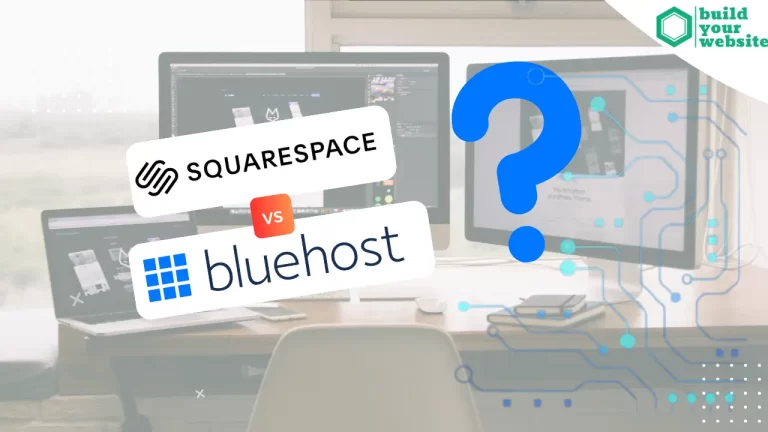WordPress vs. ClickFunnels: All What You Need To Know

In today’s digital age, having a strong online presence is crucial for businesses and individuals alike. Whether you’re a blogger, entrepreneur, or marketer, selecting the right platform to build and grow your online presence is key to success. In this comprehensive guide, we’ll delve into the comparison between two popular platforms: WordPress vs. ClickFunnels. Additionally, we’ll explore the newer version of ClickFunnels, ClickFunnels 2.0, to provide you with a well-rounded understanding of your options.
Understanding the Platforms
WordPress has long been a powerhouse in the realm of website building. With its extensive plugin library and customization options, WordPress offers unparalleled flexibility for creating a wide range of websites, from simple blogs to complex e-commerce stores.
ClickFunnels, on the other hand, emerged as a specialized platform for building sales funnels. Originally designed to streamline the process of converting leads into customers, ClickFunnels has evolved into an all-in-one platform for creating entire websites and marketing campaigns.
With the introduction of ClickFunnels 2.0, the platform expanded its capabilities to compete more directly with WordPress. Now, users can build fully customized websites with ClickFunnels, eliminating the need for external tools and plugins.
Comparison of Features
When comparing WordPress vs. ClickFunnels, it’s essential to consider the core features offered by each platform. WordPress excels in customization, allowing users to create websites tailored to their specific needs. With thousands of plugins and themes available, WordPress offers unmatched flexibility for design and functionality.
ClickFunnels, on the other hand, focuses on simplicity and efficiency. With its drag-and-drop editor and pre-designed templates, ClickFunnels makes it easy to build high-converting sales funnels and landing pages. While it may lack the extensive customization options of WordPress, ClickFunnels streamlines the process of creating effective marketing campaigns.
ClickFunnels 2.0 bridges the gap between WordPress and its predecessor, offering users the flexibility to create custom websites with the ease of use of ClickFunnels. With its updated page editor and expanded feature set, ClickFunnels 2.0 provides a compelling alternative to traditional website builders.
Pricing: WordPress vs. ClickFunnels
In terms of pricing, WordPress and ClickFunnels offer different approaches. WordPress is open-source software, meaning it’s free to use, but users are responsible for hosting and domain costs. Additionally, premium themes and plugins may incur additional expenses.
ClickFunnels operates on a subscription model, with monthly fees ranging from $97 to $297 depending on the plan. While ClickFunnels may seem more expensive upfront, it includes hosting, domain, and other essential features, eliminating the need for additional third-party services.
When comparing the total cost of ownership, including hosting and additional tools, WordPress may be more cost-effective for some users. However, ClickFunnels offers a more streamlined solution with all-in-one pricing.
Support and Community
Both WordPress and ClickFunnels have vibrant communities and extensive support resources available to users. WordPress boasts a vast community of developers, designers, and enthusiasts who contribute to its ecosystem through forums,
tutorials and plugins
ClickFunnels has a large and active user base, with dedicated support channels and a robust knowledge base. While some users have criticized ClickFunnels’ customer service in the past, the platform continues to improve its support offerings to meet the needs of its users.
Case Studies and Reviews
To provide insight into real-world experiences, let’s take a look at some case studies and third-party reviews for WordPress and ClickFunnels.
User Reviews with ClickFunnels
Natalie, a single mom and blogger, used ClickFunnels to sell over $1 million worth of eBooks in just four months. Her success story highlights the power of ClickFunnels’ sales funnels in driving conversions and generating revenue.
User Reviews of WordPress
WordPress receives high praise from users for its customization options and versatility. With over 43% of all websites running on WordPress, it’s clear that the platform has earned the trust of millions of users worldwide.
Additional Features and Tools
Beyond the core features, both WordPress and ClickFunnels offer additional tools and integrations to enhance your online presence.
WordPress boasts a vast array of plugins for everything from SEO optimization to e-commerce functionality. With thousands of options to choose from, you can customize your WordPress site to meet your specific needs.
ClickFunnels offers built-in features like email marketing automation, CRM capabilities, and affiliate management. With these tools, you can create comprehensive marketing campaigns and track the effectiveness of your efforts.
Conclusion
In conclusion, choosing between WordPress and ClickFunnels ultimately depends on your specific needs and preferences. If you value customization and flexibility, WordPress may be the better option for you. However, if you prioritize simplicity and efficiency, ClickFunnels or ClickFunnels 2.0 could be the ideal choice.
Regardless of which platform you choose, both WordPress and ClickFunnels offer powerful tools for building and growing your online presence. By carefully considering your goals and requirements, you can select the platform that best aligns with your vision for success.
In the end, whether you opt for WordPress, ClickFunnels, or ClickFunnels 2.0, the most important thing is to take action and start building your online presence today. With the right tools and strategy, you can achieve your goals and unlock new opportunities for growth and success in the digital world.






